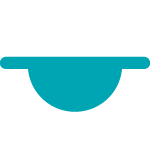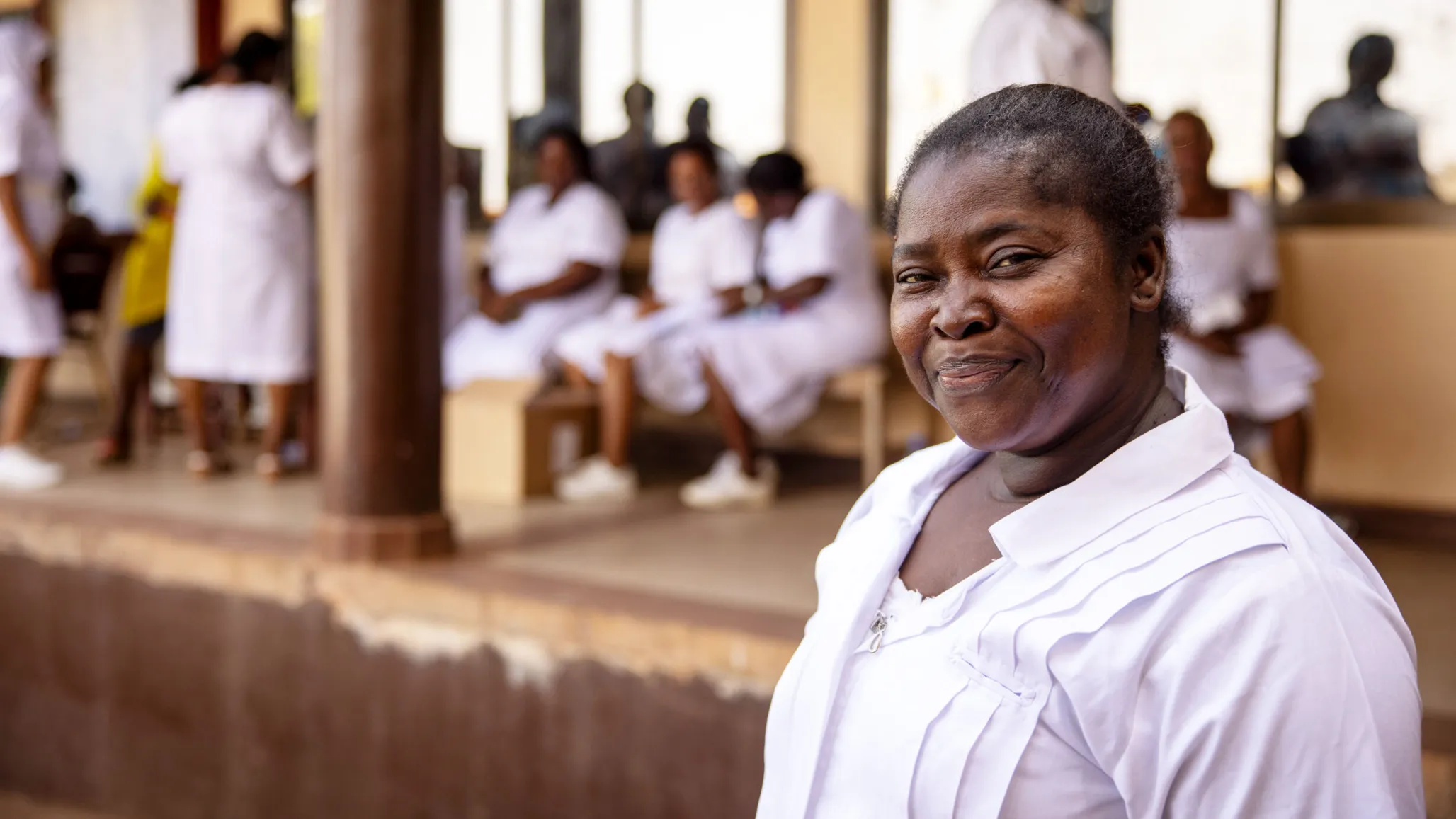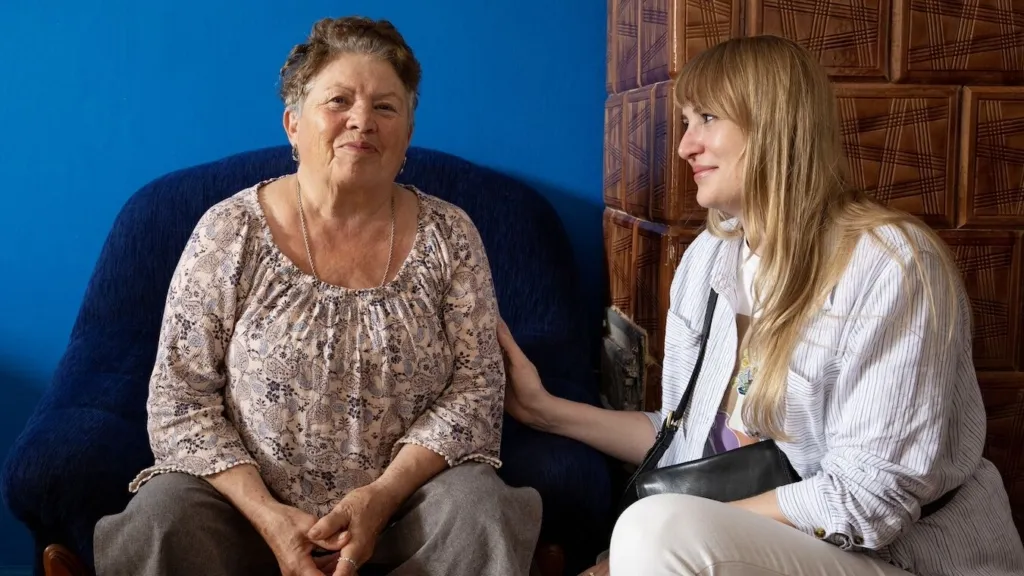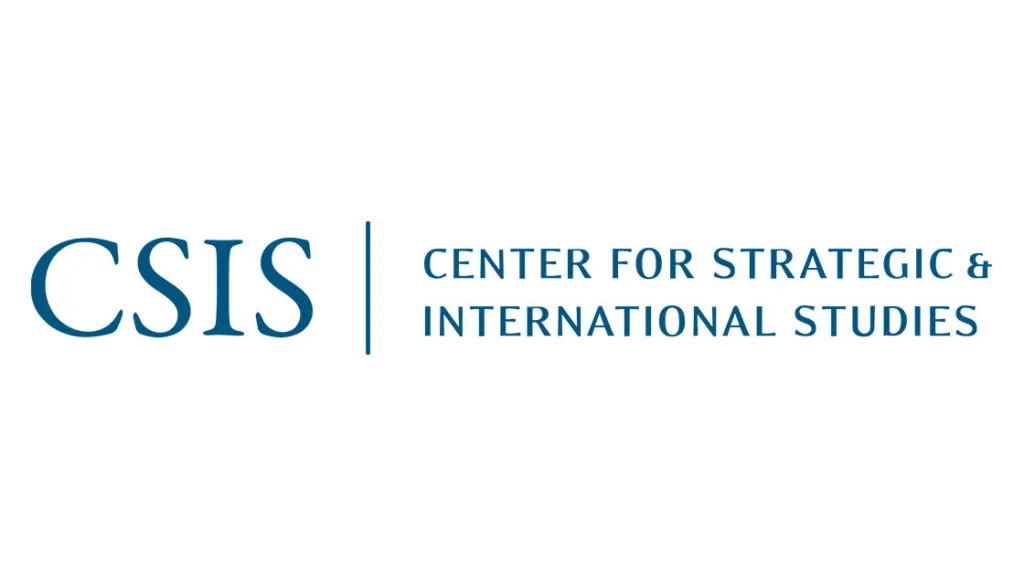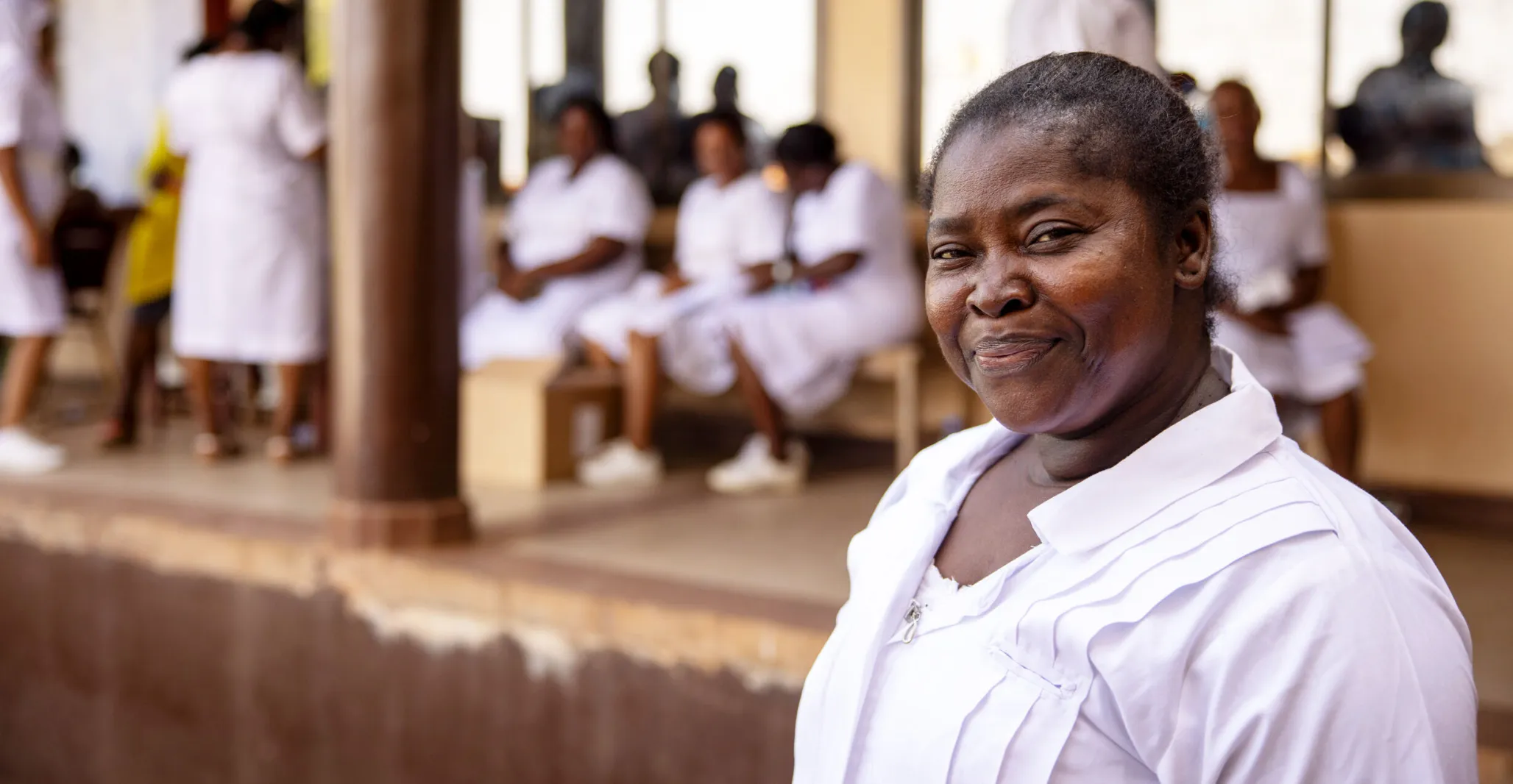

Sierra Leone
Supporting midwives and health workers to lower rates of maternal and neonatal mortality and put an end to preventable deaths
The Context
Sierra Leone has made great progress in lowering its rates of maternal and neonatal mortality, though recurring stresses to the health system like the 11-year civil war and the 2014 Ebola outbreak have made long-term transformation difficult. The majority of Sierra Leone’s population lives in rural areas where access to basic health services can be extremely limited, while health workers face a severe lack of medicines, medical equipment, and training they need to save lives.
Our Impact
Equipping Hospitals and Training Health Workers
Project HOPE provides training for health workers and equips medical facilities to save the lives of mothers and newborns.
Project HOPE’s health worker trainings include courses like Helping Babies Breathe and Helping Mothers Survive, which equip midwives and nurses across Sierra Leone with lifesaving skills like infant resuscitation and postpartum hemorrhage management. Project HOPE’s approach focuses on equipping lead trainers who then cascade their skills to other health workers across the country.
Project HOPE also supports clinics and hospital facilities, including the Special Care Baby Unit at Ola During Children’s Hospital in Freetown, where we have sent medical volunteers and consultants to work with the staff to strengthen the level of care for newborns facing life-threatening infections, diseases, and asphyxia. We’ve also repaired medical equipment and made facility improvements, including a water tank to provide clean water to the unit.
Project HOPE also established Sierra Leone’s first two Kangaroo Mother Care (KMC) units at Ola During Children’s Hospital and Bo District Hospital in Bo. KMC is a low-cost warming technique for premature and low birthweight babies that involves wrapping the baby skin-to-skin with its mother. In contexts where incubators and other equipment is scarce, KMC can be a lifesaver for underweight newborns.
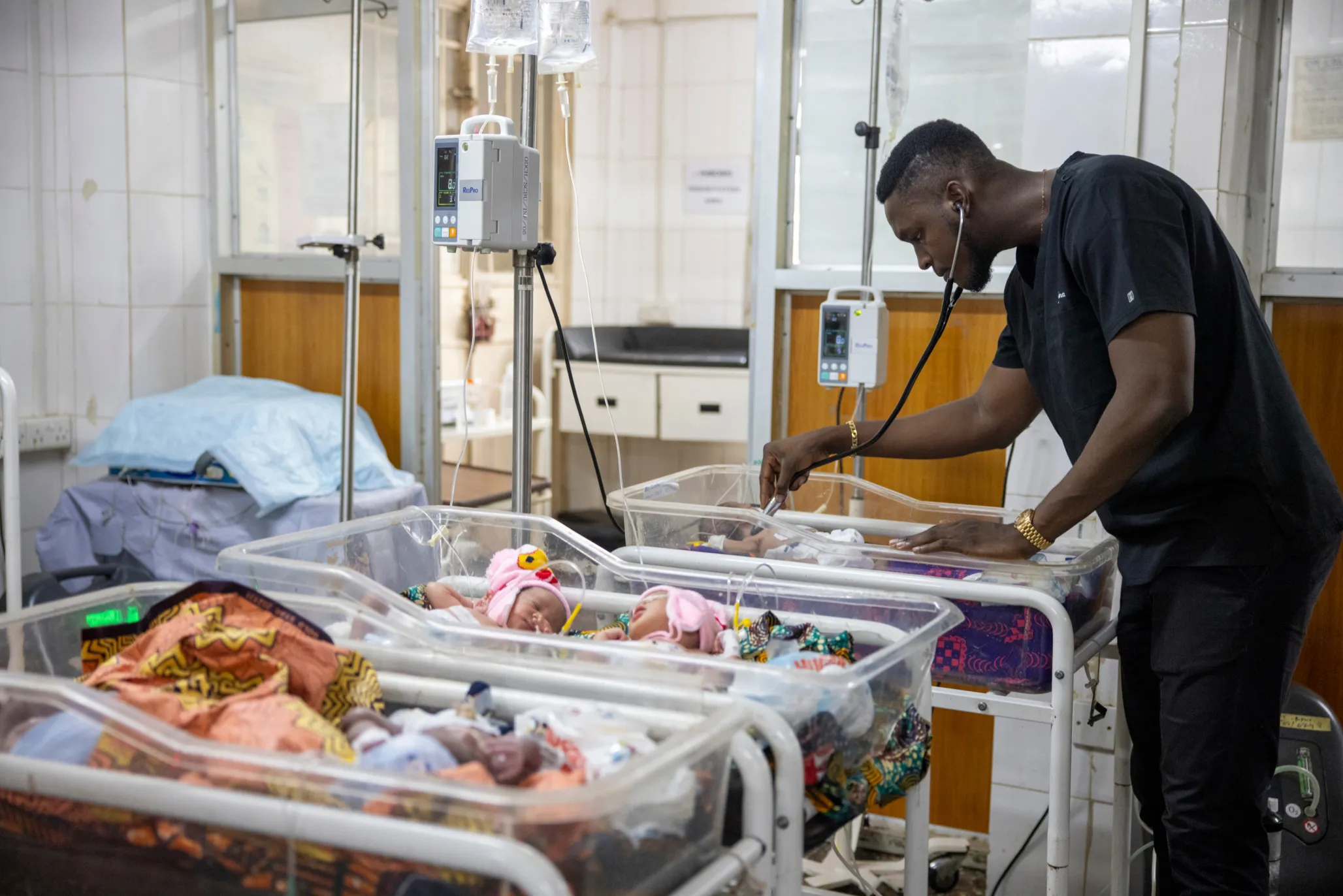
Launching Sierra Leone’s First-Ever Bachelor of Science and Master of Science Degrees
In partnership with Jefferson College of Nursing and the College of Medicine and Allied Health Science in Sierra Leone, Project HOPE established the country’s first-ever Bachelor of Science in Pediatric and Neonatal Nursing and Master of Science in Neonatal Nursing. Over two years, Project HOPE volunteer neonatal nurse educators developed curricula and made trips to Ola During Children’s Hospital to train faculty. The program includes the creation of two Project HOPE teaching fellows who instruct in the program. As of June 2025, the program graduated more than 67 students across its first three cohorts.
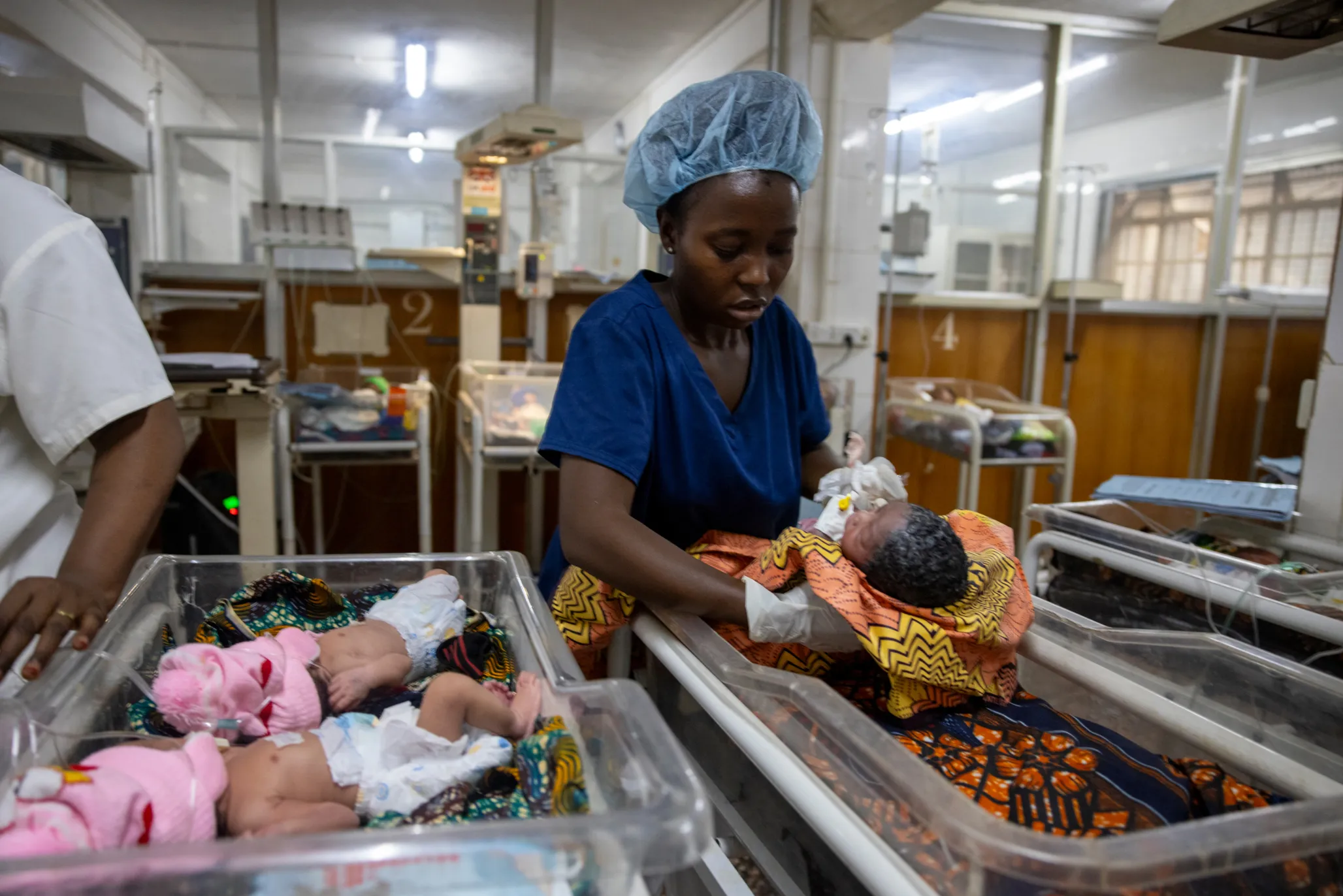
Empowering Mothers in Rural Communities
Project HOPE’s footprint extends beyond hospital walls, into the communities where mothers and children live. Through the facilitation of mother care support groups, we reach mothers with the knowledge they need to care for their newborns in their own homes and communities. Each group consists of about 20 mothers and is led by a Project HOPE-trained “lead mother.”
These lead mothers play a critical role in connecting with women who are pregnant to build trust and connect them to clinics where they can receive prenatal care and safely deliver their child. These lead mothers then conduct follow-ups with new mothers to ensure they are exclusively breastfeeding their babies and receiving all needed vaccinations to improve health outcomes.
In Sierra Leone, Project HOPE’s support:
- Trained hundreds of midwives in newborn resuscitation and maternal bleeding
- Equipped “lead mothers” in rural communities to improve community health
- Provided equipment and staff support at Ola During Children’s Hospital in Freetown
- Established the country’s first-ever graduate program in neonatal nursing
Our History in Sierra Leone
Project HOPE’s work in Sierra Leone began during the 2014 Ebola epidemic, with a deployment of infectious disease and disaster response and recovery experts to assess how to help combat the outbreak. The assessment recognized the need for broader support to improve health outcomes for women, newborns, and children, which has become the primary focus of our ongoing work in the country today.

